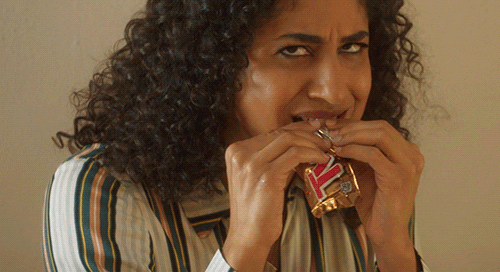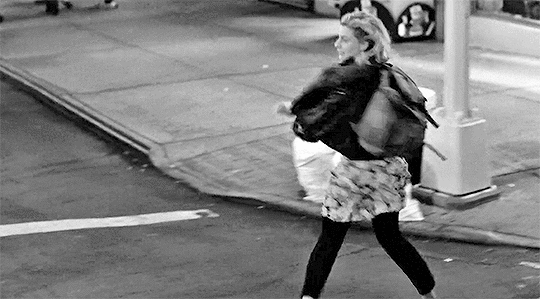For as long as I can remember, I have deeply loved chocolate. My passion for chocolate started very young; from the moment I tried it for the first time, I could never let it go. Yet, neither do I remember eating for the first time nor my mother.
My mom loves to tell people how she carried this little Brazilian chocolate called Batom (Lipstick) in her purse because she never knew when I would have an abstinence crisis and start crying. My love for it was not only personal but also probably influenced by my mother's raising traits. I don't blame her, as I was a challenging kid, and she did her best with what she had at the time.
I love chocolate—everything chocolate! Ice cream, cake, macarons, bars. And after moving to a freezing country and working for myself (and by myself), this passion of mine has intensified. For me, chocolate is the hug on bad days, the well-done tap on the shoulder on good days, and any occasion type of excuse for it. Until then, my relationship with chocolate was a healthy love.
Last year, this relationship started to concern me. Once something that felt as natural as someone passionate about it began to unravel extremely unhealthy traits, I couldn't (and didn't want) to see that maybe it had become a compulsive relationship. No appreciation was involved anymore; it was just eating, eating, eating whenever I felt like it until it was once every day, becoming part of my daily routine. It was now a habit loop.
Charles Duhigg, the author of The Power of Habits, explains the habit loop has three parts: cue, routine, and reward. The cue is like a signal that starts the habit. Then, you do the habit, which is the routine. Finally, you get a reward, which makes your brain want to do the habit again. It was not about the chocolate anymore; it was about repetition, doing the same thing every day. And when I didn't find myself a chocolate to eat after lunch, my body craved to leave the house and buy it. I started to realize this need was problematic. I often told myself I would go one week without it and that I could do it, but something always happened as an excuse not to go through it. This relationship was consuming me in a way that made me feel like a hostage to it. How could I leave? Why stop eating became hard? What should I do?
From an outsider's point of view, it's always easier. They love saying, "Just stop eating it." Yet, the "just stop" has layers of difficulties behind it. I wanted to stop, but I couldn't. I started to get mad at myself, like I lost control over my own body and mind. There's a quote from Anna Lembke, the author of Dopamine Nation: Finding Balance in The Age of Indulgence that says: "The paradox is that hedonism, the pursuit of pleasure for its own sake, leads to anhedonia. Which is the inability to enjoy pleasure of any kind." In other words, chocolate was not giving me pleasure anymore, yet I still ate it.
As we often fail to recognize habit loops as they develop, we remain unaware of our potential to control them. However, we can alter the routines by learning to identify the cues and rewards. I started to identify the problem and accept that these feelings I had were the same as those of a person with a real addiction. It was time to do something, but it was only this year that I acted on it. From February 14th, I decided to stop eating chocolate or anything with cocoa in a bet with my family when I was in Brazil. As with any addict, recovery begins with abstinence.
It feels intense and silly to use the word addiction over chocolate, yet I am. My decision to quit was based on the fact that I couldn't remember the last time I had gone three consecutive days without consuming chocolate, and that's certainly not healthy. The biggest trial of this challenge was after two days of quitting when I had to take two very long flights to return to Sweden. And guess what? I never eat on planes. My ritual when flying is always eating a Toblerone or any mini Oreos while I watch a series, and from that, I sleep and will only eat once I'm in the airport.
This time, the chocolate was out of the question, and I felt anxious and overwhelmed by my feelings of not knowing what to do when flying. What's the alternative for this habit? I didn't know. I had to find something new. Writing about how hard this was and how much it consumed me feels foolish. Should another food replace this ritual, or would it be better if I just kill it? I needed to remember that small shifts can end a pattern! No more chocolate on planes or any other food as a habit.
The more I researched about my chocolate addiction, the more I learned about habits and dopamine indulgence. Anna Lembke notes that certain foods, like chocolate, can trigger dopamine release, leading to pleasure. Yet, overindulgence can fuel unhealthy habits and potential addiction. —It's me! — Her guide to dopamine abstinence involves recognizing dopamine's role in addiction, enduring withdrawal, restoring sensitivity, and preventing relapse. It's about breaking free from excessive dopamine-driven habits to find balance. She describes that during withdrawal, people may experience a range of feelings and symptoms as their brain adapts to reduced dopamine stimulation. These can include cravings, irritability, anxiety, depression, fatigue, and difficulty concentrating. —And I promised you, I felt it all!
I asked myself how I let it get to this point. I felt sad, disappointed, and anxious during this 45-day experience. During my abstinence phase, I craved and thought daily about chocolate for the first 30 days of the challenge. My family questioned me if I really had not eaten any. They could not believe it, and neither could I. How crazy is that, right? This experience depleted my thoughts when trying to figure out solutions to my addiction. My options were limited as the only way out was through.
My body craved. My mind collapsed. Only after 33 days did I realize it was the first time I had not thought about eating chocolate. I felt like crying! I felt in profound control over my mind and body again. Yet, as the challenge was ending, I felt scared and afraid. The idea was never to stop eating forever; it was more about regaining control and building a healthier relationship with it.
On March 29th, after 45 days, I had my first chocolate again. The decision of what chocolate to have was the hardest. What would satisfy a 45-day absence in one bite? What chocolate could I eat to make up for this long gap? I thought about every possibility and nothing at all. I was willing and happy to taste it but also covered in fear of losing control.
That Friday, I walked through the streets of Barcelona, looking around for something that would crave my attention until I finally found THE one. A place where it had a phrase on the window: life is too short for bad chocolate. And it is indeed!
I entered the store, a small, local patisserie where they made their own chocolate and baked everything chocolate-related. After long 20 minutes trying to choose, I went for the chocolate croissant. And OH MY, it was so worth it! I got a bit of a high from it. I could taste all the nuances of why I loved chocolate in the first place. It had been a long time since I had this feeling.
I learned how easy it is to lose control over things/habits, how complex it is to admit to ourselves that we have a problem, and how deep some habit loops are. I took back control, but I am far from feeling safe. Things are never black or white, and as much as I love this about life, it's hard to understand that we often end up being our own worst enemies. I love chocolate and will always love it, but my challenge continues; I want to have it again as something pleasurable, something that I can enjoy, something that is not automatic and much less part of my routine. I want to be able to taste it fully.
Hi.
My name is Marina,
and I am a chocolate addict in recovery.
🟠 #INTERNETFINDS: weekly things worth sharing and consuming 🧠
How Should We Feel About Tweens at Sephora? ➞ There’s something both innocent and concerning about 13-year-olds’ obsession with skincare. Kids will always want to find new ways to express themselves, but the beauty industry has a responsibility to protect its youngest customers.
The economics of thinness ➞ It is economically rational for ambitious women to try as hard as possible to be thin.
Favorite Podcast of The Week ➞ You might think you know what it takes to lead a happier life… more money, a better job, or Instagram-worthy vacations. You’re dead wrong. Yale professor Dr. Laurie Santos has studied the science of happiness and found that many of us do the exact opposite of what will truly make our lives better.
Video of The Week ➞ Elizabeth Gilbert reflects on the impossible things we expect from artists and geniuses and shares with us the radical idea that, instead of these rare people "being" geniuses, we should all "have" a genius.
Taylor Swift—Fortnight (feat. Post Malone) ➞ This just dropped, and it is already my favorite song on the album.
“You say emotions are overrated, but emotions are all we’ve got.”







🙌🏻🙌🏻🙌🏻